
ICAS Bulletin (online ISSN 2836-3418, print ISSN 2836-340X) is published every other week throughout the year at 1919 M St NW, Suite 310, Washington, DC 20036.
The online version of ICAS Bulletin can be found at chinaus-icas.org/bulletins/.
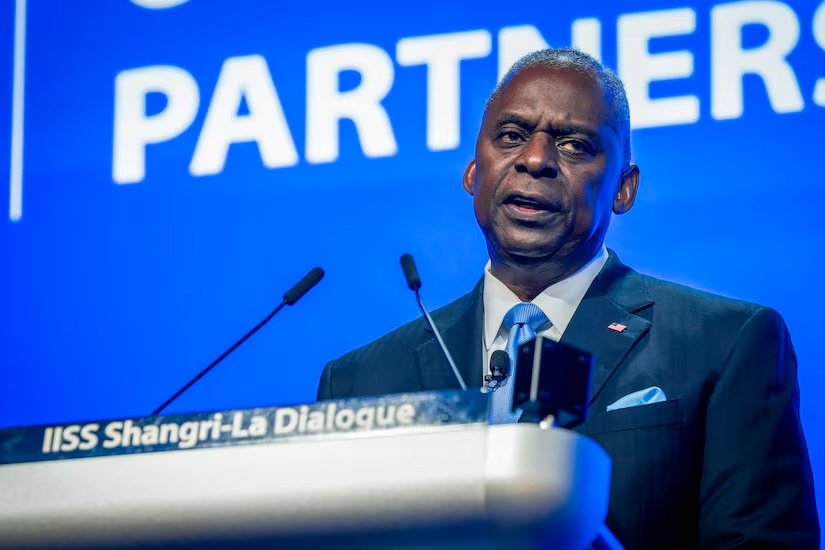
– On May 31, on the sidelines of the Shangri-La Dialogue in Singapore, U.S. Secretary of Defense Lloyd Austin and Chinese Defense Minister Dong Jun held the first high-level, in-person, bilateral meeting since U.S.-China military dialogues broke down in 2022. Both sides agreed to continue regular military-to-military communications.
– A day after the U.S. and Chinese military officials met, Secretary Austin delivered plenary remarks to the Dialogue in which he stressed the importance of a renewed U.S.-China dialogue, claiming that war with China is “neither imminent nor unavoidable.”
– Secretary Austin further stated in his remarks that the U.S. commitment to the Philippines is “ironclad.” In response, the Chinese delegation accused the U.S. of seeking to build an Asia-Pacific version of the NATO security alliance.
– One day following Secretary Austin’s speech, Chinese Defense Minister Dong Jun, in his own remarks at the Shangri-La Dialogue, accused the U.S. of destabilizing the Asia-Pacific region through its support for the Philippines and Taiwan.
– At a sideline interview in Singapore, U.S. National Security Agency Director Timothy Haugh stated that China has developed hacking technologies that are “prepositioned” to attack critical infrastructure.
Associated News References:
“China Is ‘Prepositioning’ for Future Cyberattacks—and the New NSA Chief Is Worried,” The Wall Street Journal, June 3 [Paywall]
“Chinese defense minister accuses U.S. of causing friction with its support for Taiwan and Philippines,” NBC, June 2
“Competing US-China Defense Tactics Dominate Singapore Forum,” Bloomberg, June 2 [Paywall]
“US defense secretary says war with China neither imminent nor unavoidable, stressing need for talks,” AP, June 1
“U.S. and Chinese defense chiefs hold first official meeting in Singapore,” NPR, May 31

– On May 30, U.S. Deputy Secretary of State Kurt Campbell met China’s Vice Foreign Minister Ma Zhouxu in Washington D.C. to discuss issues surrounding Taiwan, the war in Ukraine, and the nuclearization of North Korea. A State Department spokesperson explained that the meeting with Minister Ma was a part of the United States’ continued diplomatic effort to increase U.S.-China senior-level engagement.
– The Smithsonian’s National Zoo announced on May 29 that two giant pandas, who China considers as ‘envoys of friendship,’ will arrive in Washington D.C. by the end of 2024. The announcement came as a warmly received surprise after the lease agreements on three giant pandas at the Smithsonian Zoo expired in late 2023 without renewal.
– On May 28, following bilateral consultations on maritime affairs, the Chinese Foreign Ministry announced that the U.S. and China have agreed to maintain continued dialogue over maritime affairs to manage risks and avoid misunderstandings.
– The number of American students visiting China has notably begun to increase, reaching approximately 800 as American universities initiate new initiatives for exchanges in China.
Associated News References:
“US officials meet China’s vice foreign minister after sanctions warning,” Reuters, May 31
“Welcome Back, Pandas! Two Furry Diplomats Are Headed to the D.C. Zoo.,” The New York Times, May 29
“China, US agree to manage maritime risks through continued dialogue,” Reuters, May 28
“The number of American students in China is going up again,” The Economist, May 23 [Paywall]

– On May 31, U.S. Deputy Treasury Secretary Wally Adeyemo publicly threatened to impose export controls and sanctions on Chinese firms in response to China’s trade relationship with Russia.
– During a visit to Brussels on May 29, U.S. Deputy Secretary of State Kurt Campbell called upon European nations to harden their positions on Beijing for its aid to Russia and to protect European security interests.
– After the British Defense Secretary Grant Shapps accused China of supporting Russia with combat equipment in the Ukrainian war, Biden’s National Security Advisor Jake Sullivan challenged this claim, saying that “we have not seen that to date.”
– Beijing imposed retaliatory sanctions on 12 U.S. defense-related companies and 10 company executives in response to the United States’ “illegal unilateral sanctions” on Chinese companies that are suspected to have ties with Russia.
Associated News References:
“US says it could act against China firms, banks over Russian war support,” Reuters, June 1
“US treasury No. 2 warns China over support for Russia,” Reuters, May 31
“US warns Europe to get serious about China’s aid to Russia,” Politico, May 29
“US challenges British claim China is sending ‘lethal aid’ to Russia,” The Guardian, May 23
“China sanctions US defense-related companies and executives over Russia, Taiwan” AP, May 22

– U.S. economist and former chairman of Morgan Stanley Asia Stephen Roach, speaking during a public event in Beijing, said U.S. trade policies against China are risking an endless ‘trade war’ between the two nations.
– The U.S. Commerce Department has slowed the process of issuing licenses to Nvidia and Advanced Micro Devices for advanced AI chip exports to Middle Eastern countries given concerns over potential Chinese acquisition.
– Chinese firms, such as Wanxiang America Corp. which supply car components, face an increasingly difficult business environment in the United States as anti-China sentiment and concerns of national security continue to block business deals.
– In response to ongoing blocks and restrictions, many U.S.-blacklisted Chinese companies, including Huawei, Hesai Group, rebrand themselves by setting up American affiliates or subsidiaries to dodge U.S. regulations.
– JPMorgan Asia Pacific CEO Sjoerd Leenart warned that China cannot be sidelined in the global economy given its rise as a second world power. He stated that businesses and investors “have to do business there.”
Associated News References:
“US Risks a ‘Forever’ Trade War With China, Economist Stephen Roach Says,” Bloomberg, May 31 [Paywall]
“US Is Slowing AI Chip Exports to Middle East by Nvidia, AMD,” Bloomberg, May 30 [Paywall]
“Blacklisted Chinese Companies Rebrand as American to Dodge Crackdown,” The Wall Street Journal, May 29 [Paywall]
“Chinese Firms Turn From ‘Panda’ to ‘Skunk’ as US Tensions Flare,” Bloomberg, May 28 [Paywall]
“JPMorgan says China can’t be ignored: ‘You have to do business there’,” CNBC, May 23
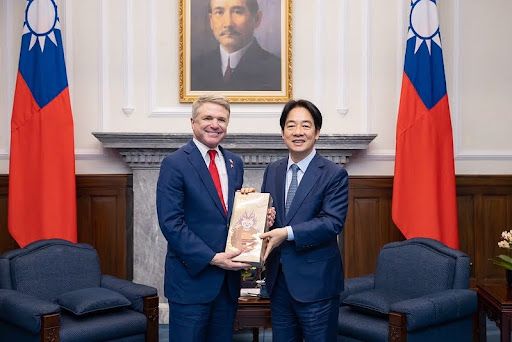
– Shortly after China’s two-day military exercise surrounding Taiwan, Washington appointed Raymond Greene, a veteran diplomat, as the new U.S. representative in Taiwan. He is set to start his position at the American Institute of Taiwan in the summer of 2024.
– Despite Beijing’s vocal opposition, U.S. House Representative Michael McCaul led a bipartisan congressional delegation to visit Taiwan’s newly inaugurated president, Lai Tsing-Te, days after his inauguration during which he expressed U.S. support for Taiwan.
– During the delegation visit, Representative McCaul reiterated the United States’ commitment to strengthen Taiwan’s defense capability against Chinese military aggression, also promising to accelerate U.S. weapon delivery to Taiwan.
– Two days after Representative McCaul’s visit, a second U.S. delegation, led by Senator Tammy Duckworth, met with President Lai in Taipei. Senator Duckworth told President Lai that “you can count on us to always show up for Taiwan.”
– The U.S. State Department expressed concerns over China’s two-day military exercise surrounding Taiwan in reaction to Lai’s inauguration speech and urged Beijing to act with restraint.
Associated News References:
“Taiwan to work with US to face ‘authoritarian expansionism’: President Lai,” MSN, May 29
“US appoints a new representative to Taiwan as the island faces China’s intimidation,” ABC, May 29
“U.S. lawmakers ignore China’s warning, meet with Taiwan’s new leader,” The Washington Post, May 27 [Paywall]
“US lawmakers vow to help Taiwan strengthen defense against growing Chinese aggression,” Voice of America, May 27
“US ‘deeply concerned’ over China military drills in Taiwan Strait, State Dept says” Reuters, May 25
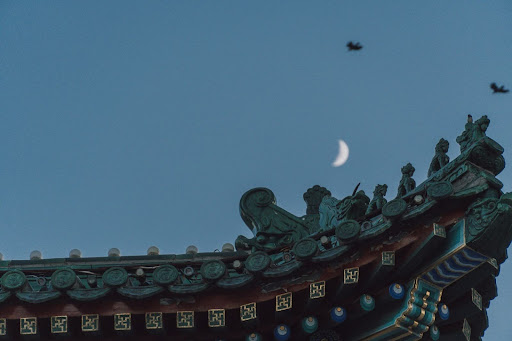
“US Defense Secretary discusses military exchanges in visit to China ally Cambodia,” Reuters, June 4
“US and Its Partners Stand Together as China Exports Problems, Rahm Emanuel Says,” Bloomberg, June 4 [Paywall]
“Biden’s science adviser explains the new hard line on China,” The Washington Post, June 3 [Paywall]
“Chinese Businesses target Vietnam and Mexico as trade tensions with US rise,” Financial Times, June 3 [Paywall]
“Chinese Firms Jostle With US Peers for Sliver of Gulf Oil Riches,” Bloomberg, June 3 [Paywall]
“China lands probe on moon’s far side to gather rocks and soil in growing space rivalry with U.S.,” PBS, June 2
“The CEO Trying to Smooth U.S.-China Tensions in Farm Country,” The Wall Street Journal, June 2 [Paywall]
“In a first, OpenAI removes influence operations tied to Russia, China and Israel,” NPR, May 31
“TikTok Pauses E-Commerce Push into Europe to Focus on US,” Bloomberg, May 31 [Paywall]
“US Cyber Chief Sees ‘Very Aggressive’ Chinese Hacking Strategy,” Bloomberg, May 31[Paywall]
“Exodus of US law firms from Shanghai accelerates,” Financial Times, May 30 [Paywall]
“Expulsions of Chinese Students Spread Confusion From Yale to UVA,” Bloomberg, May 29 [Paywall]
“University of Florida employee, students implicated in illegal plot to ship drugs, toxins to China,” AP, May 28
“US sanctions Chinese individuals over COVID-related fraud, bomb threats,” Reuters, May 28
“Xi Hosts Arab Leaders as China’s ‘Soft Power’ Expands in Mideast,” Bloomberg, May 28 [Paywall]
“China premier agrees on cooperation with Seoul, Tokyo but issues veiled rebuke against their US ties,” AP, May 27
“Taiwan president calls on US lawmakers for help to strengthen defences,” Financial Times, May 27 [Paywall]
“Pentagon chief seeks to woo Cambodia from China with Phnom Penh visit,” Financial Times, May 24 [Paywall]
“TikTok says it removed an influence campaign originating in China,” The Washington Post, May 23 [Paywall]
“Fraud Trial Begins for Chinese Billionaire Who Allied Himself With America’s Right,” The New York Times, May 22 [Paywall]
“House Panel Seeks F.B.I. Investigation Into Doping by Chinese Swimmers,” The New York Times, May 22 [Paywall]
“Inter Milan Seized by Oaktree After Chinese Owner Defaults on Debt,” Bloomberg, May 22 [Paywall]
U.S.-China and Trade Frictions: How Much Worse Will It Get?
Thursday, June 13, 2024
9:00am – 10:00am EDT
Aggravated trade tensions are once again rising to the fore in U.S-China relations. In mid-May, President Biden confirmed the Trump administration’s Section 301 tariffs on China and proceeded to heap additional tariff raises on semiconductors, EVs, batteries, and solar cells. In late-May, Treasury Secretary Yellen sounded the alarm on Chinese ‘overcapacity’, calling it a “threat to the development of clean energy industries around the world”. The recent G7 Finance Ministers statement vows to “ensure a level playing field, in line with WTO principles” to counter China’s “comprehensive use of non-market policies and practices”. China strenuously denies these charges, pointing to its competitive edge in many clean energy industries. How will it respond to the U.S.’ tariff measures? Will it continue to maintain a low-key approach?
Later this June, Trump and Biden will square off in their first presidential debate, vowing to be tougher than the other in responding to the ‘Second China Shock’. What is the outlook for U.S. trade policy in the months and years ahead? Is protectionism here to stay? How are U.S.-China trade and industrial policy tensions expected to play out during this election year? Across the Atlantic, the European Commission is priming its trade defense instruments against Chinese EV imports. Will it also use its Foreign Subsidies Regulation rulebook to push back against the likely torrent of Chinese greenfield EV investment that has begun to wash up on the EU’s shores? Is there a difference in approach between the U.S. and the EU in dealing with the ‘Second China Shock’? China has initiated WTO dispute settlement proceedings against the Inflation Reduction Act’s trade-distorting EV subsidies. What is the outlook for third-party dispute settlement and for the multilateral trade system, more broadly, particularly as the U.S. reverts to its pre-WTO era usage of its Section 301 instrument? To listen to these pressing bilateral and multilateral trade and tariff-related questions, tune in to the ICAS Trade ‘n Technology Program event on June 13.
Big Wave and Undercurrent:
Washington’s Duo-Track Efforts to Compete with China in the Global Maritime Influence
By Yilun Zhang, Amanda Jin
May 23, 2024
Key Takeaways:
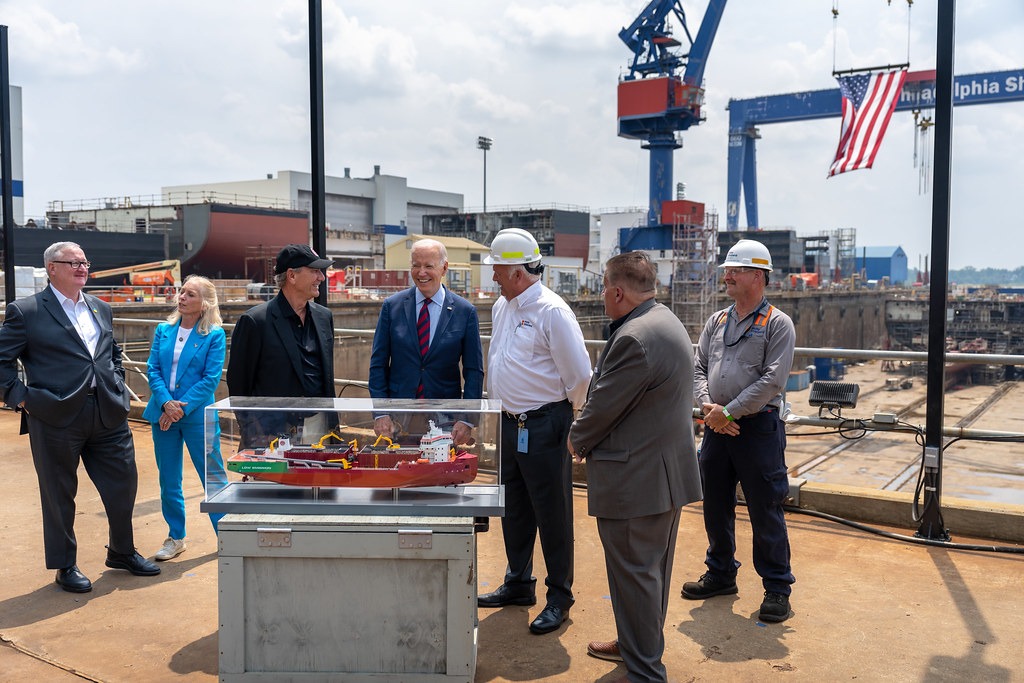
A Landmark Advisory Opinion: ITLOS Strengthens Legal Framework for Climate Action
By Nong Hong
May 28, 2024
On May 21, 2024, the International Tribunal for the Law of the Sea (ITLOS) issued a groundbreaking Advisory Opinion on climate change, which marks a historic first – an international legal body directly addressing state obligations for mitigating climate change, a critical step forward in holding nations accountable for their actions.
The request made to ITLOS in December 2022 by the Commission of Small Island States on Climate Change and International Law seeks clarification on states’ obligations under UNCLOS regarding the prevention, reduction, and control of marine pollution, as well as the protection and preservation of the marine environment in relation to climate change impacts. This is the first time an advisory opinion has been sought on issues specifically related to sea-level rise and climate change more broadly.
On Monday, May 27, 2024, Senior Fellow Sourabh Gupta discussed the trilateral summit between China, South Korea, and Japan on CGTN.
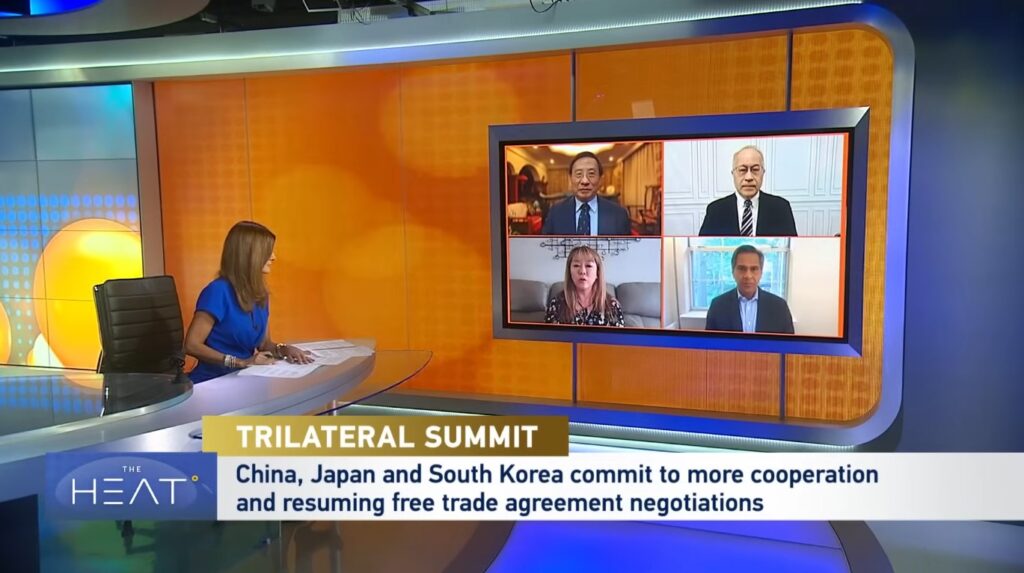
On Wednesday, May 22, 2024, Senior Fellow Sourabh Gupta was quoted by China Daily on the first U.S-China talks on AI in Geneva.

The Institute for China-America Studies is an independent nonprofit, nonpartisan research organization dedicated to strengthening the understanding of U.S.-China relations through expert analysis and practical policy solutions.
1919 M St. NW Suite 310,
Washington, DC 20036
icas@chinaus-icas.org
(202) 968-0595
© 2025 INSTITUTE FOR CHINA-AMERICA STUDIES. ALL RIGHTS RESERVED.